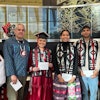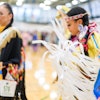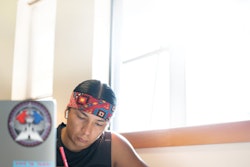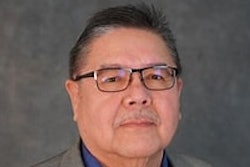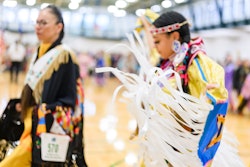The much-publicized settlement between Arizona State University (ASU) and the Havasupai tribe over alleged misuse of DNA samples collected from tribal members sheds light on the often-uneasy relationship between indigenous peoples and academia.
For many American Indians, the case is an example of the paternalism that that has dominated the relationship between academic researchers and tribes for generations.
“There continues to be a sense that Western ways of knowing and understanding are more important and therefore give researchers the right of way in understanding the world,” says Dr. Sonya Atalay, a member of the Anishinabe tribe and an assistant professor of anthropology at Indiana University.
Researchers are beginning to find out, however, that failure to be forthright with research subjects, honor their customs, and produce research for their benefit spurs deep-seated resentment among research populations, according to Atalay. In light of the Havasupai dispute, some tribes developed policy on participating in genetics research while others opted out of research projects altogether.
Several members of the Havasupai tribe in 1990 agreed to provide blood samples to ASU researchers with the understanding that they would conduct studies examining the tribe’s high rates of type 2 diabetes. When they learned the samples were used years later to study mental illness and the tribe’s geographical origins, they banished university employees from the reservation in 2003.
The Havasupai, a tribe of about 650 members living on the floor of the Grand Canyon, sued the university alleging that researchers did not get adequate consent to include the blood samples in additional research. After spending $1.7 million fighting Havasupai claims in court, ASU settled with the tribe in April for $700,000 and issued a public apology. The Havasupai had sought $60 million in the lawsuits it brought against the university.
In video interviews with The New York Times, tribal members expressed a deep sense of betrayal and pain when learning that the university had subjected their blood to genetic testing linking their origins to Asia. This news flew in the face of traditional Havasupai stories of origin that say the tribe emerged from the Grand Canyon.
